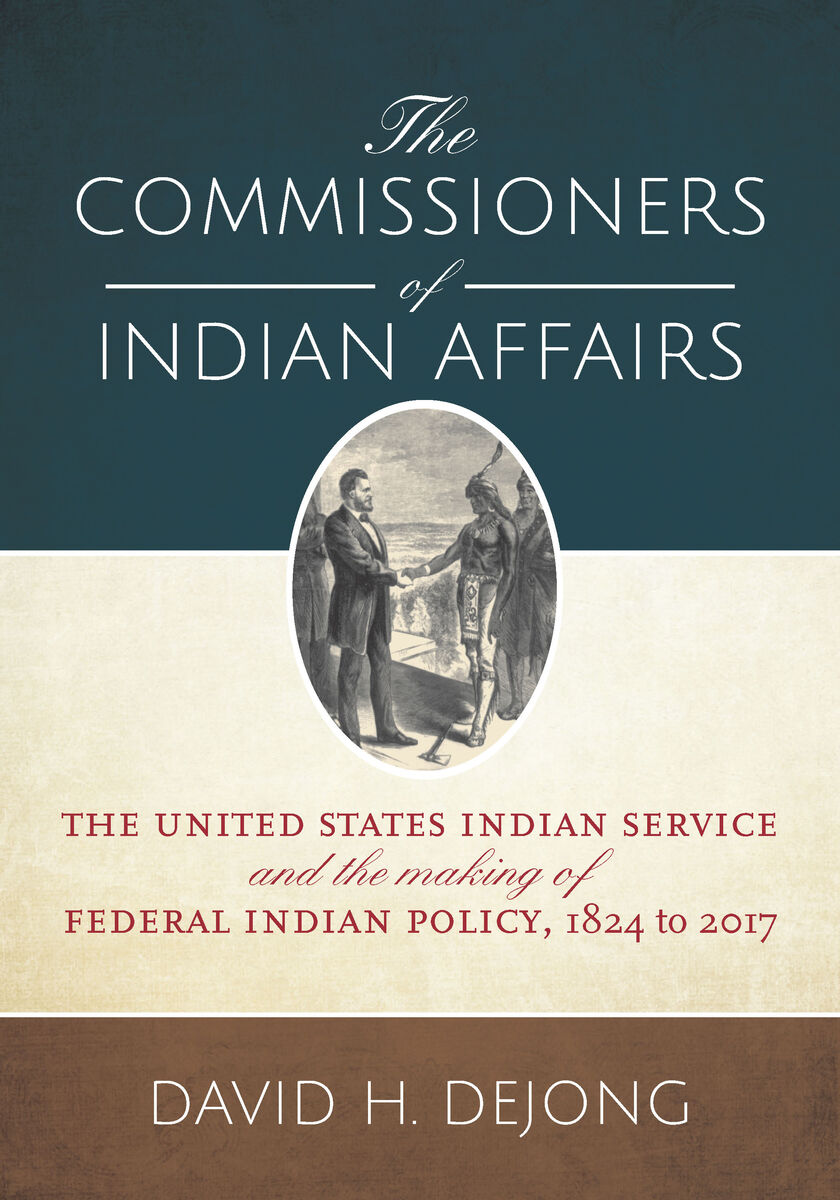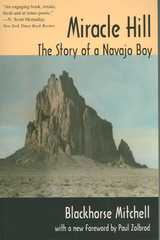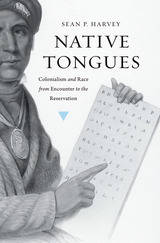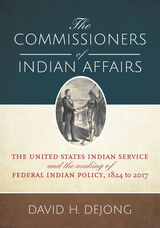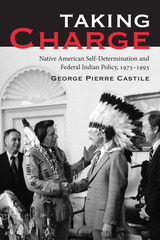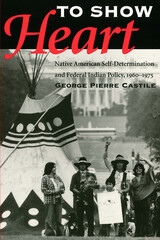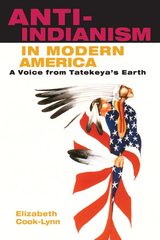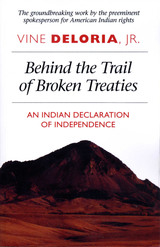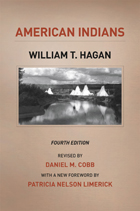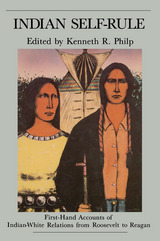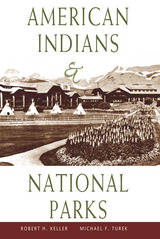The Commissioners of Indian Affairs: The United States Indian Service and the Making of Federal Indian Policy, 1824 to 2017
University of Utah Press, 2020
Paper: 978-1-60781-749-9 | Cloth: 978-1-60781-772-7 | eISBN: 978-1-60781-750-5
Library of Congress Classification E93
Dewey Decimal Classification 323.1197073
Paper: 978-1-60781-749-9 | Cloth: 978-1-60781-772-7 | eISBN: 978-1-60781-750-5
Library of Congress Classification E93
Dewey Decimal Classification 323.1197073
ABOUT THIS BOOK | AUTHOR BIOGRAPHY | REVIEWS | TOC | REQUEST ACCESSIBLE FILE
ABOUT THIS BOOK
Although federal Indian policies are largely determined by Congress and the executive branch, it is the commissioner and assistant secretary of Indian Affairs who must implement them. Over the past two centuries, the overarching goals of federal Indian policy have been the social and political integration and assimilation of Native Americans and the extinguishment of aboriginal title to Indian lands. These goals have been woven into policies of emigration, assimilation, acculturation, termination, reservations, and consumerism, shifting under the influence of a changing national moral compass. Indian Affairs commissioners have and continue to hold an enormous power to dictate how these policies affect the fate of Indians and their lands, a power that David H. DeJong shows has been used and misused in different ways through the years.
By examining the work of the Indian affairs commissioners and the assistant secretaries, DeJong gives new insight into how federal Indian policy has evolved and been shaped by the social, political, and cultural winds of the day.
By examining the work of the Indian affairs commissioners and the assistant secretaries, DeJong gives new insight into how federal Indian policy has evolved and been shaped by the social, political, and cultural winds of the day.
See other books on: 2017 | DeJong, David H. | Government relations | Indian Affairs | United States. Bureau of Indian Affairs
See other titles from University of Utah Press
